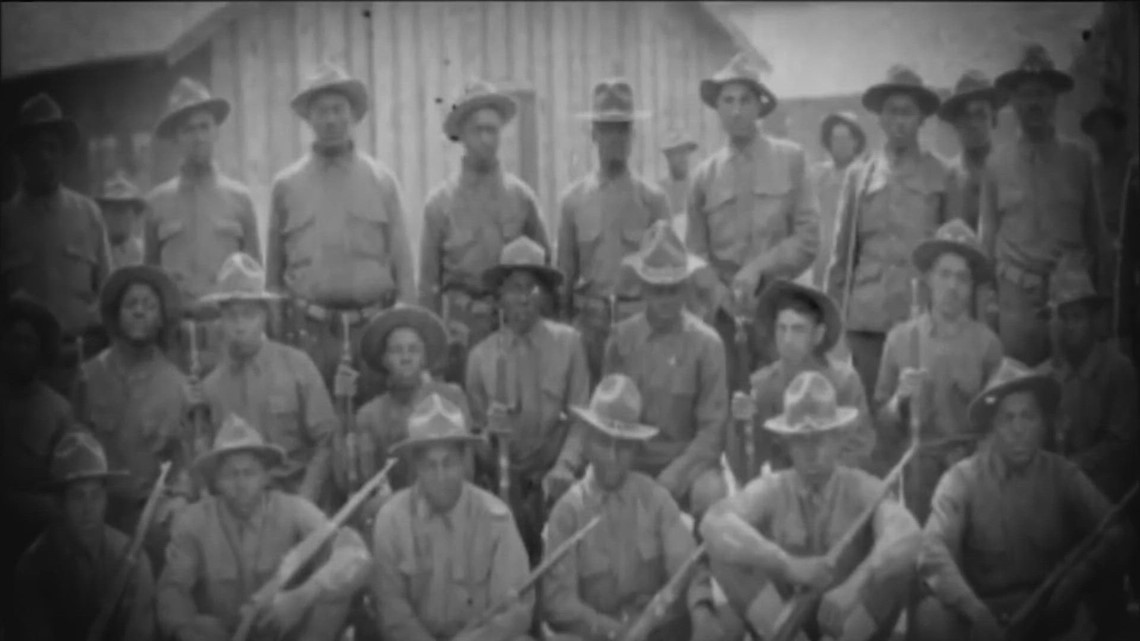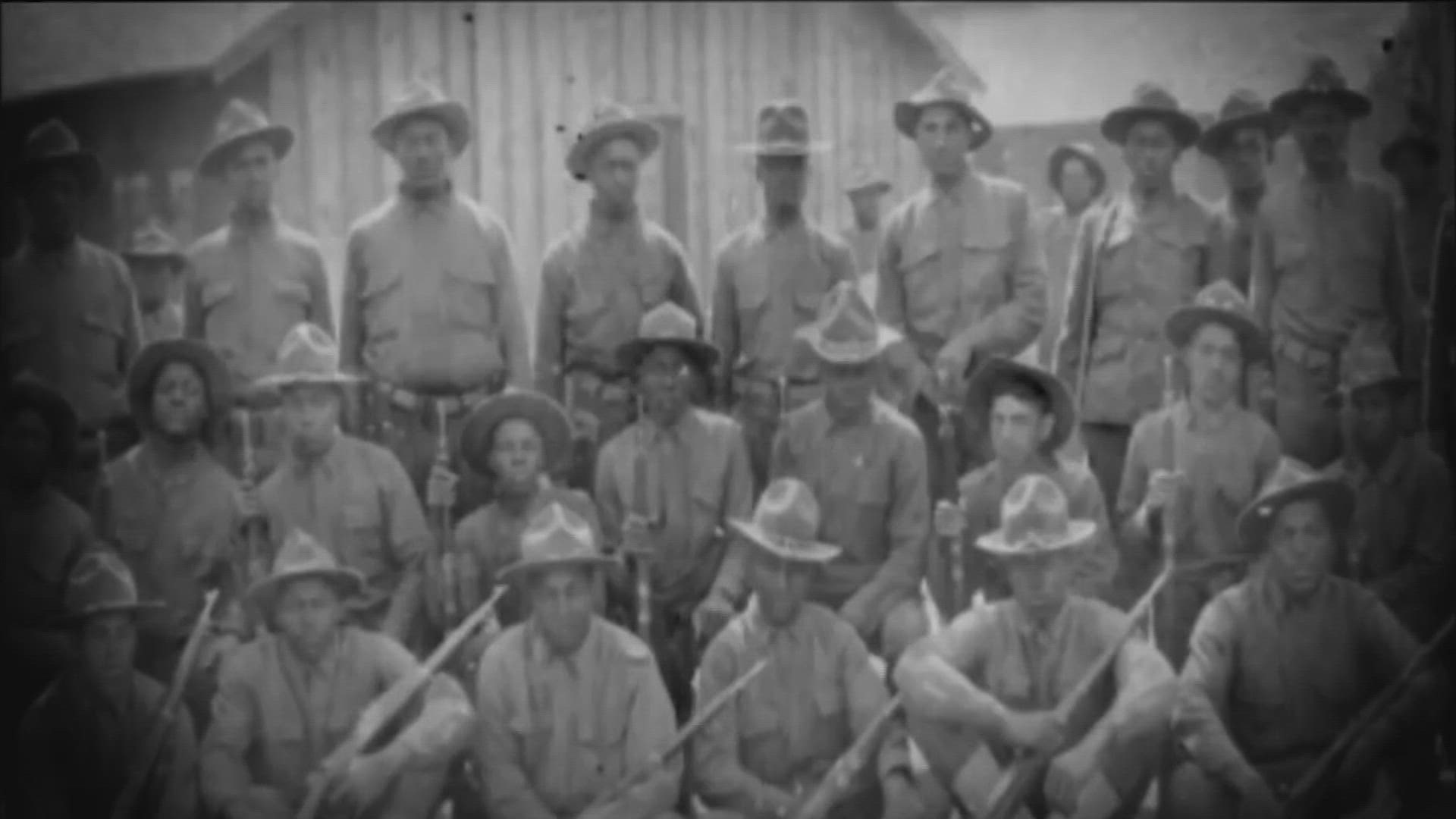HOUSTON — One of Houston's most beloved spaces was also home to one of the city's darkest chapters. You know it as Memorial Park, but in 1917, it was Camp Logan, a training camp for World War I soldiers.
"People walk or jog through the park today not knowing the untold history of Camp Logan took place," said Bishop James Dixon, president of the Houston Chapter of the NAACP.
The all Black 24th Infantry unit was tasked with guarding construction at Camp Logan. These decorated soldiers arrived in Houston, a city ripe with racial tension and discrimination. They were subjected to and witness of awful acts of racism.
"They just wanted to be treated as men and soldiers and when they got to Houston they didn't get that" said Professor Geoffrey Corn with South Texas College of Law Houston.
In late August, those racial tensions exploded into a night of violence. It started when police arrested and beat a Black solider who was trying to help a Black woman who'd been dragged from her home by police and beaten.
The Black soldiers feared a white mob was on its way to attack. Riots ensued.
When it was all over, 19 people were dead. The Army court-martialed 110 Black soldiers.
It led to the largest murder trial in U.S. history with 63 soldiers on trial at once, with only 1 defense counsel to represent all of them.
"This was not justice because they never had a chance," said Corn.
All 110 found guilty. 19 were executed without a right to appeal. Everyone else sent to prison. 40 served life sentences.
"We're righting a wrong that happened in 1917, 104 years ago," said Corn.
Now more than a century later, the South Texas College of Law Houston and the local NAACP signed a memorandum of understanding pledging to push for overdue justice for the soldiers.
"The punishment they served can't be changed, but their reputations can be," said Corn.
They're asking the Army to posthumously pardon them and grant them posthumous honorable discharge.


"The Army failed them and they can recognize that by granting this clemency," said Corn.
For descendants like Professor Angela Holder, whose great uncle was one of the soldiers put to death, today's move is one step closer to clearing her loved one's name.
"I'm very happy with what's been done up to this point, and just say prayers we can keep it going," said Holder.

